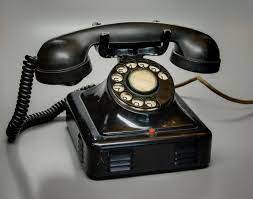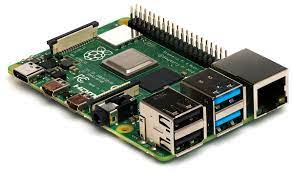Unimaginable changes have occurred in the world over the past 100 years. The rate of change is exponentially growing, and there are now technologies that were hardly even imaginable at the beginning of the previous century. For centuries, Great Britain has been at the forefront of these technical advancements, developing the concepts and innovations that helped shape the world we live in today. It is impossible to overestimate the contribution made by British scientists and inventors.
With a long history of invention and innovation, the UK has given the world ideas and goods we can’t live without.
The Steam Engine
The development of train travel increased global connectivity, accelerated trade and commerce, and reduced trade costs. Thomas Newcomen created the first steam piston engine economically viable circa 1712.
The steam engine would later characterize a period of transportation innovation and usher in the industrial revolution.
The World Wide Web
We barely need to explain to you the internet’s importance in influencing today’s socio-political scene. Tim Berners-Lee, an English computer scientist, is credited with founding the modern digital world when he developed the first web browser in 1989 while working at CERN. The internet, a collection of networks that allow us to access the world wide web, should not be confused with the web.
Berners-Lee laid the groundwork for the web by developing HTTP, HTML, and URI, or URL as it is now known, and then he watched it take off worldwide.
The Telephone
The first telephone transmissions were the words “Mr. Watson, come here, I want you.” Just have a look at where telecoms are today.
That was back in 1876, right here in the UK. Today, we have instant access to everyone, including our very own Mr. Watson, 24 hours a day, seven days a week, across all continents. One of the most innovative and revolutionary events of our time is the development of the telephone. As something distinctly British, this domestic creation has changed the globe for the better.
Raspberry Pi
The Raspberry Pi computer is a wonderful illustration of British technology at its best and is unquestionably a more contemporary invention than the radar or the telephone.
Raspberry Pi revolutionizes education by enabling individuals to learn in an engaging, interactive environment with low-cost, high-performance computers. The Raspberry Pi, the best-selling British computer, has sold over 12 million of its single board computing systems, enabling communities worldwide to learn the fundamentals of computer science more affordably.
Geostationary Satellite
Around the end of World War II, when the general population of Britain was probably more concerned with how their immediate future would turn out than how technology in space could improve their lives, the concept of geostationary satellites began to gain traction.
Sci-fi novelist Arthur C. Clarke first proposed that satellites could be used to transmit TV signals in 1945 when he started spreading the word about how satellites may revolutionize international communications.
The idea of a satellite transmitting radio around the clock was created in the UK when Clarke theorized the precise distance such satellites would need to be from the earth to ensure a 24-hour orbit.





